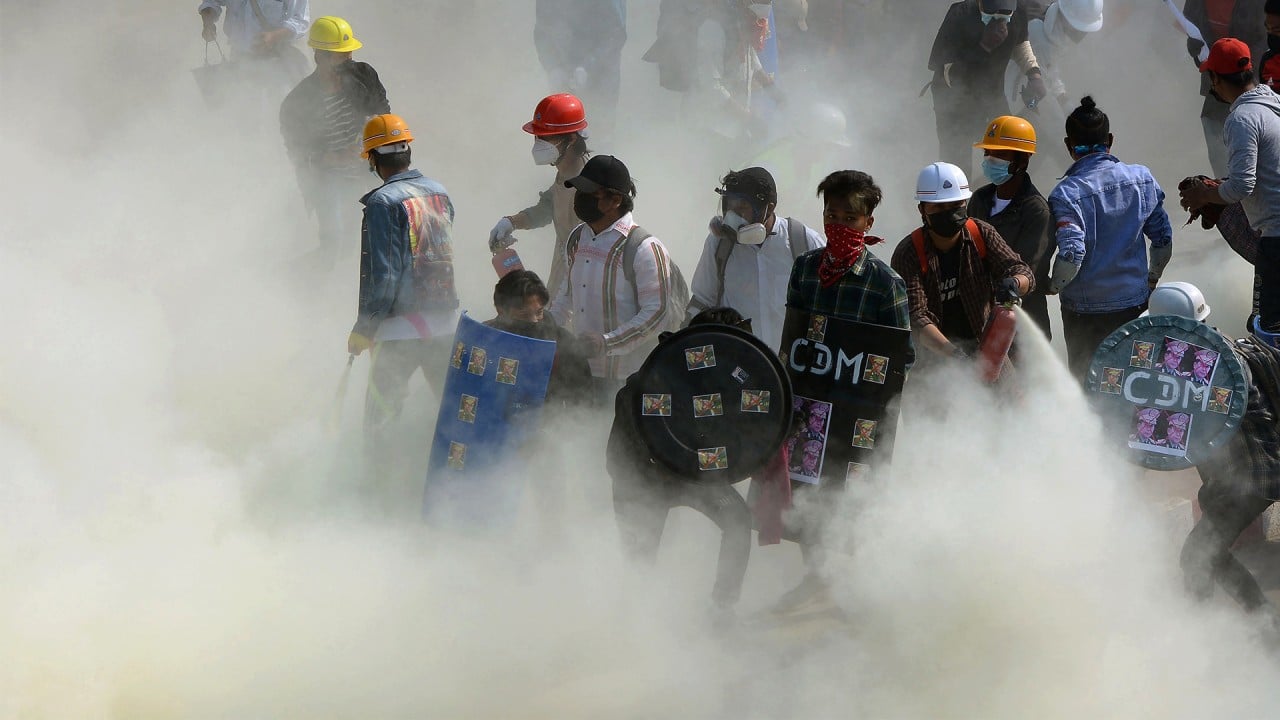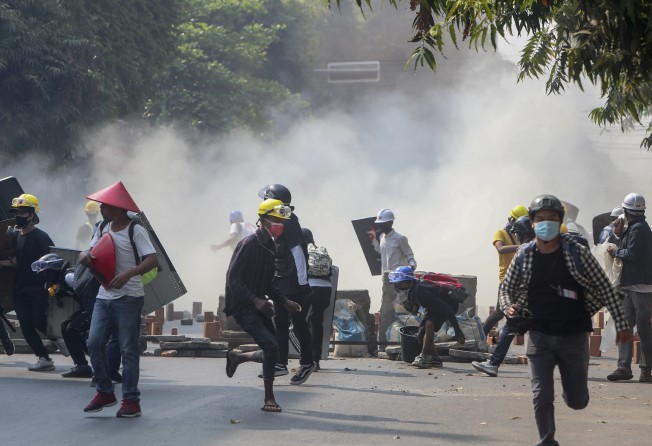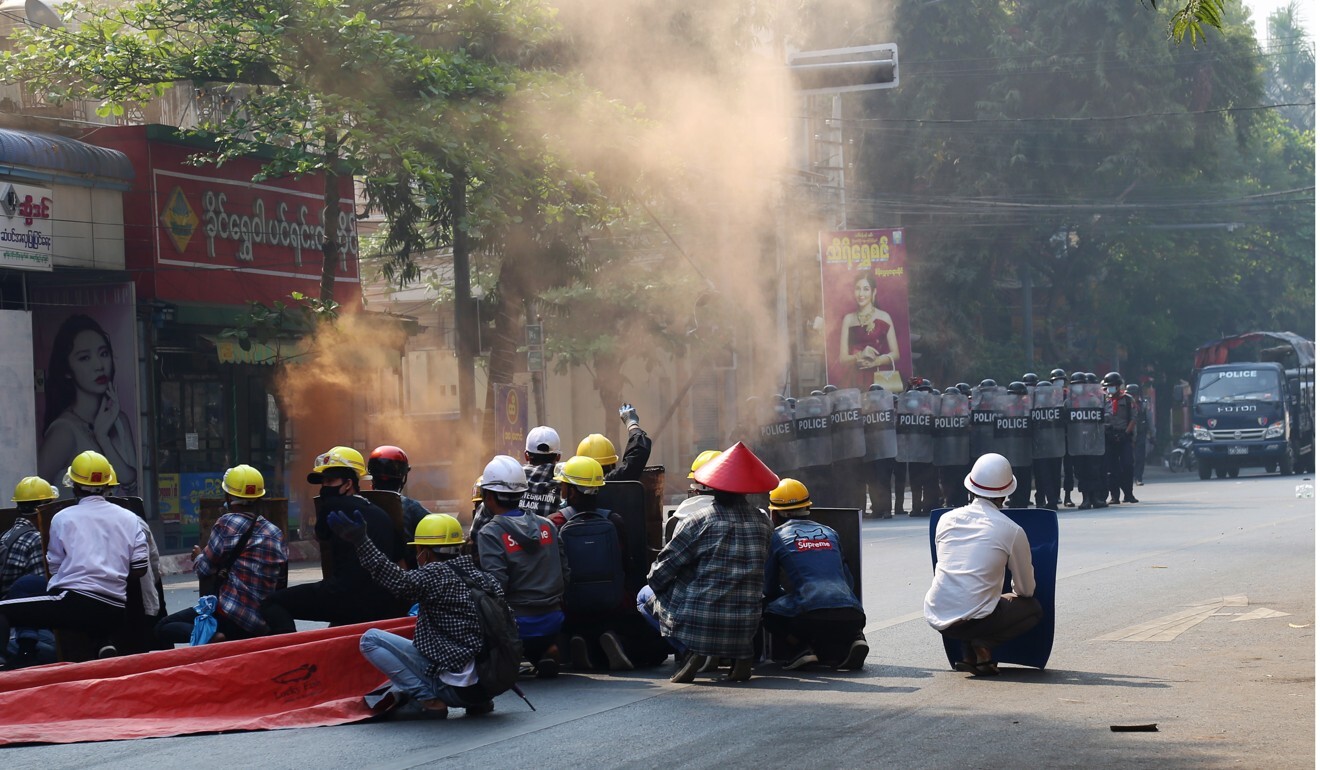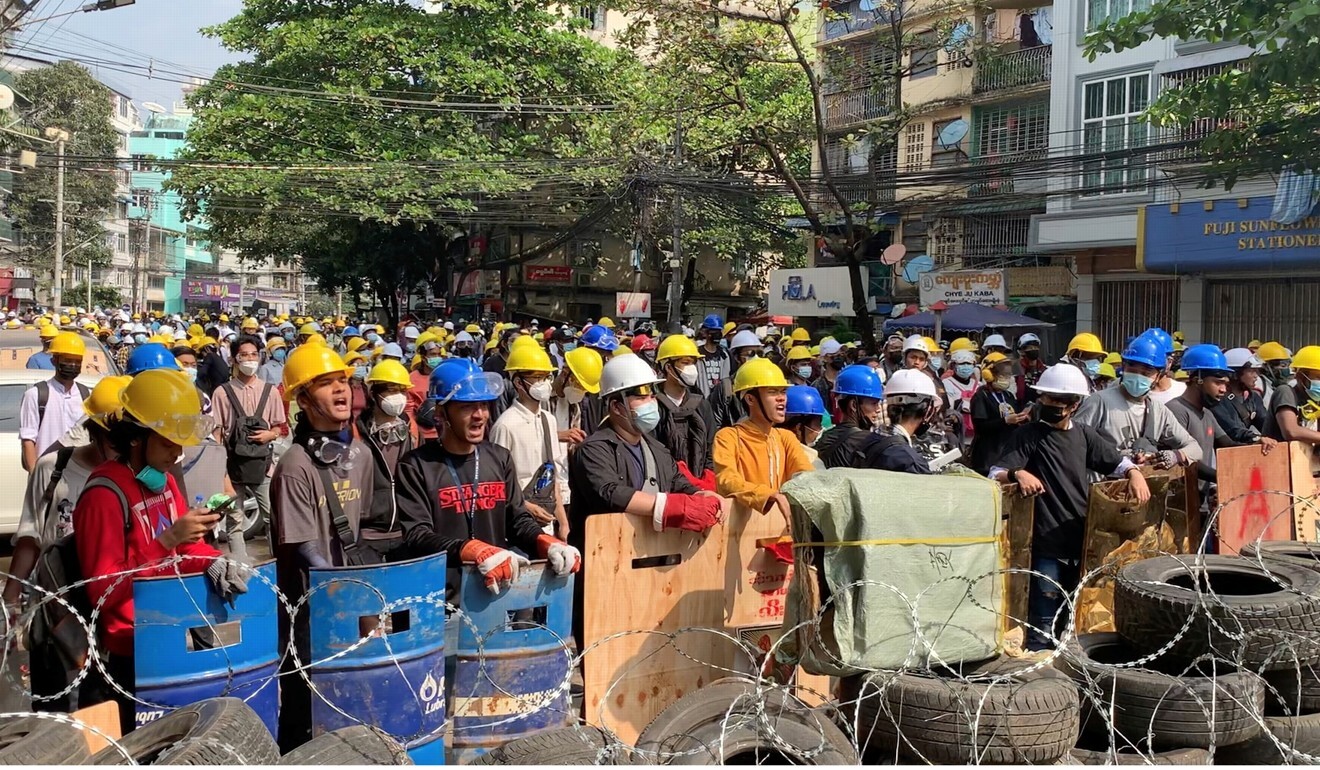
03:24
Dozens killed as Myanmar sees one of its worst days of crackdown since coup

At least 38 people died on Wednesday as Myanmar security forces fired on pro-democracy protesters, after the junta hit half a dozen detained journalists, including an Associated Press photographer, with criminal charges.
The country has been in chaos since February 1 when the military launched a coup and detained civilian leader Aung San Suu Kyi, ending Myanmar’s decade-long experiment with democracy and sparking daily mass protests.
International pressure is mounting – Western powers have repeatedly hit the generals with sanctions – and Britain has called for a United Nations Security Council meeting on Friday.
But the junta has ignored the global condemnation, responding to the uprising with escalating force, and security forces used lethal force on demonstrators again on Wednesday.

03:24
Dozens killed as Myanmar sees one of its worst days of crackdown since coup
“Only today, 38 people died,” UN envoy to Myanmar Christine Schraner Burgener told reporters on Wednesday, adding that more than 50 people had died in total since the military takeover, with many more wounded.
“Today was the bloodiest day since the coup happened,” she noted, without providing any further details, including a breakdown of the deaths. She called for the UN to take “very strong measures” against the generals, adding that in her conversations with them they had dismissed the threat of sanctions.
The violence left the United States “appalled and revulsed,” State Department spokesman Ned Price said, telling reporters: “We call on all countries to speak with one voice to condemn the brutal violence by the Burmese military against its own people.”
He singled out China, a frequent US adversary that Myanmar’s military has historically considered its main ally.
“China does have influence in the region. It does have influence with the military junta. We have called upon the Chinese to use that influence in a constructive way, in a way that advances the interests of the people of Burma,” Price said, adding that the US, which has imposed sanctions on junta leaders, was looking at further actions.
In Yangon’s downtown Pansodan Road, near the famed Sule pagoda intersection, protesters pasted printouts of junta leader Min Aung Hlaing’s face on the ground – a tactic aimed at slowing down security forces who will avoid standing on the portraits.
In another San Chaung township, which has been the site of intense clashes in recent days, tear gas and fire extinguisher clouds filled the streets as riot police confronted protesters.
“The country is like the Tiananmen Square in most of its major cities,” the Archbishop of Yangon, Cardinal Charles Maung Bo, said on Twitter, alluding to the suppression of student-led protests in Beijing in 1989.

Wednesday’s violence came after the foreign ministers of Southeast Asian nations – including Myanmar’s junta representative Wunna Maung Lwin – discussed the crisis at a virtual meeting.
After the talks Indonesia’s Retno Marsudi expressed frustration over the junta’s lack of cooperation.
Singapore – which is Myanmar’s largest investor – condemned the authorities’ use of lethal force, with Premier Lee Hsien Loong telling the BBC that it was “unacceptable”.
AP photographer Thein Zaw, 32, was arrested on Saturday as he covered a demonstration in Myanmar’s commercial hub Yangon, his lawyer said on Wednesday.
Thein Zw and five other Myanmar journalists had been charged under a law against “causing fear, spreading false news or agitating directly or indirectly a government employee”, according to the lawyer, Tin Zar Oo.
The junta amended the law last month, to increase the maximum sentence from two years to three years in jail.
“Ko Thein Zaw was simply reporting in line with press freedom law – he wasn’t protesting, he was just doing his work, the lawyer, Tin Zar Oo, said, adding that all six were being held at Insein prison in Yangon.
The other five journalists are from Myanmar Now, Myanmar Photo Agency, 7Day News, Zee Kwet Online news and a freelancer.
AP’s vice-president of international news Ian Philips called for Thein Zaw’s immediate release.
“Independent journalists must be allowed to freely and safely report the news without fear of retribution,” he said.

According to the Assistance Association for Political Prisoners (AAPP) monitoring group, more than 1,200 people have been arrested since the coup, with about 900 still behind bars or facing charges.
But the real number is likely far higher – state-run media reported that on Sunday alone more than 1,300 people were arrested. AAPP says that 34 journalists are among those detained, with 15 released so far.
The most recent confirmed arrest came Monday, when a Myanmar journalist with broadcasting service Democratic Voice of Burma (DVB) live-streamed a late-night raid on his home.
The footage – posted on DVB’s Facebook page – appeared to show loud bangs outside his apartment building as he pleaded with authorities not to shoot.
Meanwhile, Britain has called for the UN Security Council to meet Friday on Myanmar. As the violence escalates, Myanmar’s military junta and the envoy sent by its toppled civilian government have launched contradictory claims over who represents the country at the UN.
Ambassador Kyaw Moe Tun spectacularly broke with the military before the General Assembly on Friday in an emotional plea for help to restore ousted civilian leadership, which prompted the junta to announce his removal.
Both he and the junta now claim to represent the country at the body, with the UN saying it is evaluating what action to take on the competing claims.
“We will continue to oppose the military coup and we will continue to support the restoration of Burma’s democratically elected civilian government,” the US State Department spokesman said.
David Khin, who works in the public relations sector, said he was among the Myanmar citizens based overseas closely following events at home. He said the junta had miscalculated the strength of the civil disobedience movement but urged countries like Japan and India to exert pressure on the junta.
“It is imperative that all countries, the United Nations, European Union and most importantly Asean must take a stand, disapprove of the coup, not recognise the regime and impose binding actions that will put Myanmar back where it was before the coup,” Khin said.
The coup had united the nation as a whole “towards a common enemy”, he said.
Additional reporting by Reuters and Maria Siow